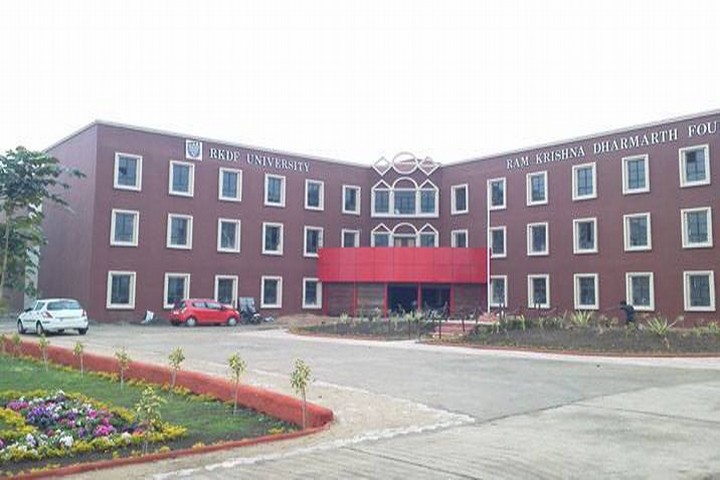What is Management
Management is a specialised field of study that involves overseeing and coordinating resources and operations within an organisation, be it a business, a non-profit entity, or a government body. Management is the science of managing resources, including financial, natural, technological and human resources. After completion of this course, graduates can work as a Business Development Manager, Operations Manager, Operations Manager, Business Application Manager, and Business Analyst.
The topics covered in this course include Microeconomics and Macroeconomics, Principles of Management, Cost Accounting, Financial Accounting, Banking and Insurance, Operations and Supply Chain Management. The courses are offered at both undergraduate and postgraduate levels such as BBA/ BCom, BA, BS, MBA, and MPA.
Highlights- Management
| Particulars | Values |
|---|---|
Branch Name | Management |
Degree | BBA/ BCom, BA, BS, MBA, and MPA. |
Duration | UG: 3 years PG: 2 years |
Eligibility Criteria | UG: 10+2 PG: Bachelor’s Degree |
Admission Process | Entrance Exam? Direct Admission |
Top Entrance Exams | SET, AIMA UGAT, NPAT, CAT, XAT, MAT, CMAT |
Average Course Fees | Rs 6080 to Rs 24.50 Lakhs |
Top Colleges | IIM Ahmedabad, IIM Calcutta, IIM Bangalore, MDI Gurgaon, XLRI Jamshedpur, SIBM Pune. |
Career Options | Business Development Manager, Operations Manager, Associate Manager, Relationship Manager, Business Analyst. |
Average Salary | Rs 9.2 LPA ( for a Business Analyst) |
Top Recruiters | Google, Goldman Sachs, Accenture, Infosys, Citibank, Deloitte, Reliance, Mahindra, ICICI Bank, Nestle |
Specialisation or Similar Ones
Management is a specialised branch consisting of various fields such as Marketing Management, Financial Management, Human Resource Management, International Business, and Supply Chain Management. In the table below we have mentioned some of the key specialisations of the Management branch.
Business Management
Operation Management
Project Management
Logistics and Supply Chain Management
Entrepreneurship Management
In the table below, we have listed some related or similar degree programmes of Management course.
MBA Business Management | MBA Logistics and Supply Chain Management |
BBA Family Business Management | B.Com Cooperative Management |
BBA International Business and Retail Management | B.Com Office Management and Secretarial Practice Hons |
Top Management Colleges in India
There are many colleges in India both private and government, offering various courses in the domain of management. Some of the top institutes are IIM Ahmedabad, IIM Bangalore, XLRI Jamshedpur, MDI Gurgaon, SIBM Pune. The admissions to these institutes are based on either entrance exam or direct admission based on previous exam scores. In the table below we have mentioned some of the top B-Schools in India offering various degree programmes in the field of management.
| Colleges | Fees |
|---|---|
Rs 31.50 Lakhs | |
Rs 24.50 Lakhs | |
Rs 20.50 Lakhs | |
Rs 14 Lakhs | |
Rs 20.65 Lakhs | |
Rs 90,000 | |
Rs 22.02 Lakhs | |
Rs 6080 | |
Rs 2.13 Lakhs | |
Rs 8.45 Lakhs | |
Rs 10.29 Lakhs |
Top Private Management Colleges in India
Management is such a field that almost all the colleges in India offer at least one or two degree programmes in the same. Many private institutes in India offer courses in the field of Management. In the table below, we have mentioned the top private management colleges in India.
| Colleges | Fees |
|---|---|
XLRI Jamshedpur | Rs 14 Lakhs |
MDI Gurgaon | Rs 20.65 Lakhs |
SIBM Pune | Rs 22.02 Lakhs |
Rs 11.84 Lakhs | |
Rs 19.38 Lakhs | |
Rs 10.10 Lakhs |
Top Government Management Colleges in India
Government colleges are known for their quality education and affordable fees. There are many premier government institutes in India providing many degree programmes in the field of management. In the table below we have mentioned the top B-Schools offering Management courses in India.
| College | Fees |
|---|---|
IIM Ahmedabad | Rs. 31.50 Lakhs |
IIM Bangalore | Rs. 24.50 Lakhs |
IIM Kozhikode | Rs. 20.50 Lakhs |
Rs. 31 Lakhs | |
IIT Kharagpur | Rs. 10.29 Lakhs |
Rs. 7.50 Lakhs |
Eligibility Criteria (UG & PG) of Management
Eligibility Criteria (UG & PG) of Management
Candidates interested in pursuing an undergraduate or postgraduate degree programme in the field of management must check the eligibility criteria of the desired institute before applying for the admissions.
Generally for UG programmes, the candidates need to have successfully completed their 10+2 education in any stream with a minimum aggregate score of 50 percent to be eligible for the admissions. For the PG course, the candidates need a Bachelor’s degree in a relevant field with 50 percent aggregate score. Mentioned below are the eligibility requirements in detail for UG and PG courses in the domain of Management.
Eligibility Criteria for UG Courses
To pursue a UG programme in the field of Management, the candidates need to have successfully passed their 10+2 education in any score in any stream
- Aspirants must have completed their Higher Secondary Exam from any stream with a minimum of 50% aggregate marks
- Aspirants must have studied English as a compulsory subject in class 12
- Students coming from any background may pursue Management studies, but those with Commerce backgrounds will receive some relaxation in the cut off marks for admission
- Candidates who fulfil the above criteria must sit for the respective entrance exam conducted by the institute.
Top Entrance Exams for UG Courses
SET: Symbiosis Entrance Test or SET is an undergraduate entrance exam in the field of management offered by Symbiosis International University for its various courses such as BBA, BCA, BA, and B.Sc Hons.
AIMA UGAT: AIMA UGAT is an entrance examination in the field of management which is conducted by All India Management Association ( AIMA) for various courses such as BBA, BHM, B.Com, IMBA.
Eligibility Criteria for PG Courses
The eligibility criteria for pursuing further studies in Management at the postgraduate level include:
Candidates must have acquired a graduate degree from any discipline with a minimum aggregate of 50%, from any recognized university or institute. For reserved category students, the minimum cut off is 45%
Students pursuing the final year of their graduate programme are also eligible to apply for an MBA course, provided they produce the proof of their completion of the graduation degree when asked by the institute.
Top Entrance Exams for PG Courses
CAT: Common Admission Test popularly known as the CAT is one of the most popular management national-level entrance exams which is conducted by the IIM for admission to the IIMs and more than 1,200 B-schools in India.
MAT: Management Aptitude Test also known as MAT is another national-level entrance exam in India. The exam is conducted by the All India Management Association (AIMA) for admission to their MBA/PGDM course.
CMAT: Common Management Admission Test or CMAT is a national-level entrance exam which is conducted by the National Testing Agency for MBA programmes. CMAT scores are accepted by over 1,000 educational institutes in India.
XAT: Xavier Aptitude Test or XAT is another national-level management entrance examination which is conducted by XLRI Jamshedpur for admission to their MBA courses at all the branches of XLRI and more than 600 other B-schools in India.
College Predictors VIEW ALL
Scope of Management in India and Abroad
Management is one of the most popular choices of course of study among students in India, and this is with good reason. Businesses are vast, varied and constantly growing in different economic sectors, this calls for highly driven, innovative, and talented professionals graduated in the field of management. It is vast, varied, and constantly growing businesses in different economic sectors call for highly driven, innovative, and talented professionals preferably with a degree in Management.
These professionals play very important roles in firms and individual companies, at many different hierarchical levels.On top of that, the ever-increasing, intense competition in the business world further adds to the demand for ingenious management executives and professionals in various economic sectors, not only in India but also in any country abroad.
Students also liked
Course Fees Management
| Minimum Fees | Maximum Fees | |||
|---|---|---|---|---|
| Private | Government | Private | Government | |
| UG | ||||
| PG | ||||
| DOCTORAL | ||||
Course Subjects
The syllabus and courses for the degree programmes in the field of management depends on the level of study and degree programme the student wants to pursue. Some of the common subjects in all the degree programmes are Principles of Management, Financial Accounting, Cost Accounting, Banking and Insurance, and Business Law.
Careers in Management
A career in Management is one that is highly sought-after and therefore highly competitive. A lot of skills need to be inculcated continuously throughout one’s career, and professionals must always try to have an advantage or an edge that keeps them in the business at respectable positions.
That being said, a Management career is highly rewarding for those who enjoy the competition. It is a highly dynamic field of work, constantly requiring you to stay updated, focused and alert.
Ensuring that customers receive seamless, timely service and leading the development team | |
Operations Managers are responsible for planning direct operations and improving efficiency and stability. They are responsible for maintaining the overall budget of a company. | |
Associate Managers are professionals who are responsible for overseeing clerical and support workers in a company, training staff to perform tasks like answering phones and greeting customers, typing letters and reports, and faxing documents. They are also assist in the financial growth of the organisation | |
Relationship Managers are responsible for setting up meetings with clients, helping clients determine the right policies most beneficial to them. They are responsible for finding potential clients to increase the revenue of the company. | |
Business Application Managers are responsible for screening everyday operations of the application team, anticipating business requirements and providing feedback where necessary | |
Business Analysts are responsible for analysing tasks and workshops, giving statistical advice to the senior management team |
Upcoming trends
There is no perfect way to be a good manager, however many books, manuals, and websites you look into. Experience and skills are among the more important factors in teaching one how to effectively carry out managerial responsibilities. The technical updates are changing how things are carried out. Artificial Intelligence is making a huge impact on the field of management by making things more automated.
Remote Workers: The pandemic that brought the entire world to a standstill taught us, more than anything else, how effective remote working can be to a business. As the number of employees working remotely from home has increased exponentially, positive outcomes have been observed not only in productivity and employee’s stress levels but also on the carbon footprints of companies.
Video Marketing: Technology is the future. Almost every company today has an online presence, some even on multiple platforms, because this practice has shown outstanding results from the marketing and awareness perspective. In this area, video marketing has gained popularity tremendously, with statistics revealing that more than 55% of people watch at least one marketing video a day, making it the marketing strategy with the highest ROI. Live videos on the company’s social media profile, promotional videos on their websites, and many other ways of video marketing have emerged that have boosted engagement and attracted lots of traffic to companies.
Training Millennials: The oldest individuals in the “millennials” group are 35 years of age as of 2020, and millennial presence in managerial positions has increased. As more millennials continue to rise to positions of managerial responsibility, a trend has begun to emerge regarding training strategies that can best prepare these people for the responsibility. As the next generation, i.e. Gen Z begins to enter the workforce, millennials will need to know how to manage them.
Several new management trends are cropping up now and then, making obvious the need for continuous education of oneself. In an ever-evolving world, today’s solutions may not be the best choice for tomorrow. With technologies like Artificial Intelligence becoming integrated into more and more companies’ framework, employees must be able to adapt to constant changes.
Job Profiles and Top Recruiters
The graduates in the field of Management can be appointed in various careers. Some of the popular career choices chosen by the students are Business Analysts, Operations Manager, Associate Manager, Relationship Manager, and Business Application Manager.
| Infosys | |
| Goldman Sachs | IBM Corp |
| TCS | Citibank |
| HCL Technologies | Deloitte |
| Accenture | Aditya Birla Group |
| Cognizant Technology Solutions | Flipkart |
Average Salary
The salary after any management degree programme depends on various factors such as the job profile, experience and skills of the students, location of the company. In the table below we have mentioned the average salary of some of the top career options.
| Job Profile | Average Salary |
|---|---|
Business Development Manager | Rs 7.0 LPA |
Business Analyst | Rs 9.2 LPA |
Operations Manager | Rs 10.1 LPA |
Relationship Manager | Rs 4.9 LPA |
Source: Ambition Box
Required Skillset for Management
Candidates wishing to pursue Management degrees require certain skills to perform well academically and in their respective careers. Some of the skills required for Management courses are Ability to Work under pressure, Problem Solving, and Decision Making Skills. In the table below we have mentioned the required skills for the Management field.
Decision- Making Skills | Managerial Skills |
Problem- Solving | Management Aptitude |
Good Communication Skills | Leadership Skills |
Course Curriculum for Management
A course in Management focuses on developing knowledge and essential skills in sub-fields in the domain of management such as finance, accounting, marketing, and human resource management.In the MBA, for instance, upon completion of the first year, students undertake summer training in managerial skills, wherein they analyse and come up with solutions to specific management problems under the guidance of a manager in the host company as well as a faculty member.Any course in Management is aimed at preparing students to deal first hand with all kinds of business situations at various levels of hierarchy in a company.
Popular Management Entrance Exams in India
Frequently Asked Questions (FAQs)
Question: What is the average fees of Management course?
Answer :
The average fees of Management course depends on the location and type of the institute. The fees of a private institute is generally higher as compared to a government institute. The average fees ranges from Rs 6080 to Rs 24.50 Lakhs.
Question: What are the top recruiters hiring Management graduates?
Answer :
The top companies hiring Management graduates are Google, Goldman Sachs, TCS, Accenture, Cognizant.
Question: What is the average salary of a Management graduate?
Answer :
The average salary of a Management graduate in India depends on various factors such as the qualification and resume of the candidate, location of the job, and skills.
Question: What are the top colleges offering Management courses in India?
Answer :
There are many colleges in India offering different degrees in the field of Management. The top colleges are IIM Ahemdabad, IIM Bangalore, XLRI Jamshedpur, MDI Gurgaon, and SIBM Pune.
Question: What are the career options in the field of Management?
Answer :
There are many career options in the field of Management such as Business Development Manager, Operations Manager, Associate Manager, and Relationship Manager.
Question: Can I pursue a correspondence course in MBA?
Answer :
Yes, certain universities like Indira Gandhi National Open University (IGNOU), Osmania University and Annamalai University offer MBA degrees in distance learning/correspondence mode.
Question: Is Mathematics in Class 12 mandatory for studying BBA?
Answer :
No, mathematics is not a compulsory subject in Classes 11 and 12 for aspirants of BBA. A majority of universities accept candidates from all streams with the simple requirement that they have acquired the minimum cut off marks.
Question: Does the BBM curriculum include industrial training and exposure?
Answer :
The answer to this varies from college to college; some colleges take industrial training very seriously, while some even make it a part of their curriculum.
Question: Which course is better between BBA and BBM?
Answer :
Apart from the fact that BBA offers certain specializations, the curriculum of both is nearly the same, as are the fundamental concepts. Thereby, both courses are incomparable in quality, you can choose either.
Question: Which are the specializations available in an MBA course?
Answer :
All specialisations in MBA have bright prospects for students, so the choice is entirely made based on what suits your interest best.
Some of the specialisations you can choose from our MBA in Operations, MBA in Sales and Marketing, an MBA in Information Technology, MBA in Finance, and an MBA in HR.



































